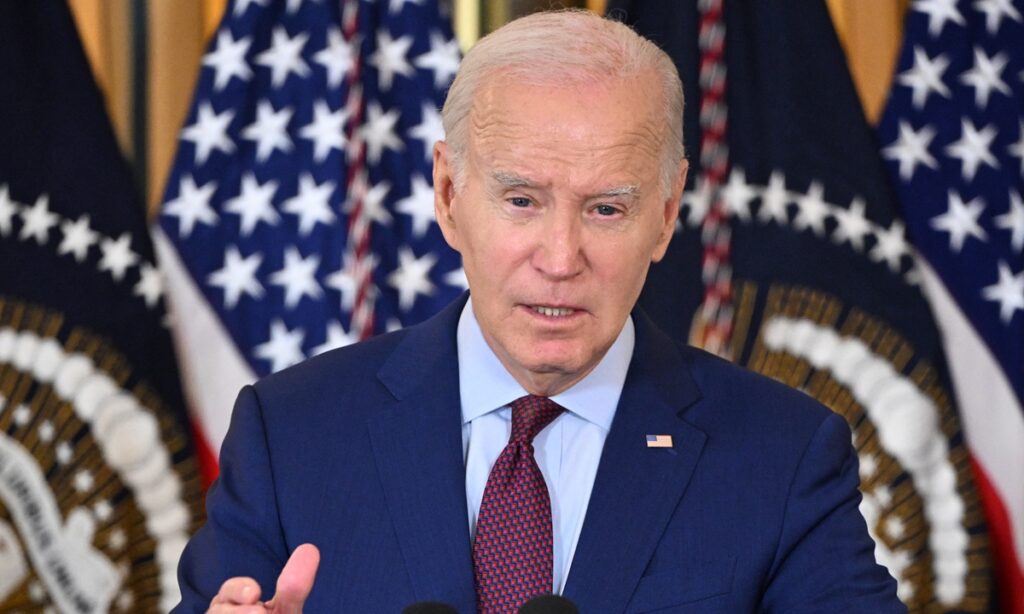The US and Vietnam are eyeing developing ties to a higher level, as Washington puts more efforts into using or forcing China’s neighbors to join the US-launched Indo-Pacific strategy and major power competition that aim to contain China’s development.
Analysts said Vietnam, in order to boost its own development, wants to benefit from the US strategy, but that it will not be used by the US to contain China. The Southeast Asian and socialist country enjoys a high level of mutual trust and deep cooperation with China, while there will be limits on closer US-Vietnam due to complicated ideological and historical reasons.
US President Joe Biden is heading to Vietnam in September to meet with General Secretary of the Communist Party of Vietnam (CPV) Central Committee Nguyen Phu Trong, the White House announced on Monday. The US president will arrive in Hanoi on September 10, tacking on the one-day visit to the Vietnamese capital after attending the annual G20 leaders’ summit in India.
“The [US and Vietnamese] leaders will explore opportunities to promote the growth of a technology-focused and innovation-driven Vietnamese economy, expand our people-to-people ties through education exchanges and workforce development programs, combat climate change, and increase peace, prosperity, and stability in the region,” White House press secretary Karine Jean-Pierre said in a statement.
Biden’s visit is expected to see the two nations announce a “strategic partnership,” an upgrade on the current “comprehensive partnership,” US media Politico reported on August 18, citing “three people with knowledge of the deal’s planning.”
Xu Liping, director of the Center for Southeast Asian Studies at the Chinese Academy of Social Sciences, told the Global Times on Tuesday that Vietnam has a long-existing diplomatic plan to develop strategic partnerships with all five permanent members of the UN Security Council, and “the US is the last one to have it due to the complicated US-Vietnam relations.”
“Vietnam is a socialist country, so it’s facing ideological pressure from the US, and many conflicts and attacks within Vietnam are related to US-backed anti-government organizations. The country is facing a long-standing threat of ‘color revolutions’ from the US since the end of Vietnam War,” Xu said.
Xu said Biden will face domestic pushback on becoming closer to Vietnam. “Although Biden wants to include Vietnam as a key partner in the Indo-Pacific strategy, he also faces pressure from conservative forces in the US Congress and from other political groups that are hostile toward Vietnam and the CPV,” he said.
Lingering historical issues after the Vietnam War are another problem, experts said. The US committed numerous atrocities and war crimes including using bio and chemical weapons, and massacring civilians during the war, and caused generational harm to Vietnamese people, and added to geopolitical concerns, the development of Vietnam-US ties is slow, Li said.
Li Haidong, a professor at China Foreign Affairs University, told the Global Times on Tuesday that the US is now deciding to upgrade ties with Vietnam because its priority is the major power competition against China and Russia, and Washington will try everything it can to make the biggest use of the regional disputes around China to create troubles.
“The Biden administration is searching for another ‘Ukraine’ in Asia. Vietnam needs to stay calm and vigilant, to avoid being used by the US as a pawn to contain China on its geopolitical chessboard,” Li noted.
Xu said China and Vietnam are two socialist countries with a high level of mutual trust, so “we don’t have ideological problems, and the inter-party relationship between the Communist Party of China and the CPV guides the development of bilateral relations. Hanoi understands that a stable relationship with China is key to safeguarding the political security of its socialist system.”
Analysts said that US-Vietnam relations can never match the level of China-Vietnam relations, which is why Vietnam retains close communication with China before or after significant engagement with the US, so any impact of closer US-Vietnam relations should not be over-exaggerated.
(Global Times)




